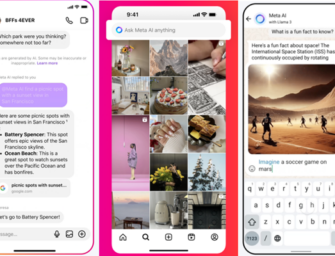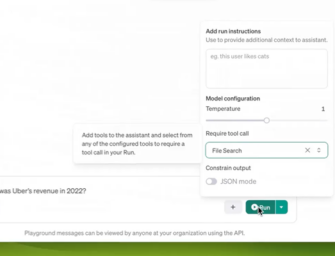Consumers Want to Use Voice Assistants on Smartphones for Healthcare, Multimodal Expectations From the Start
Last week, Voicebot published the Voice Assistant Consumer Adoption Report for Healthcare in collaboration with Orbita. The report is the first in-depth analysis of the intersection of voice assistants and healthcare use cases and part of the data was gathered from a national survey of 1,004 U.S. adults. A finding we reviewed in an earlier article is that 52% of consumers want to use voice assistants for healthcare use cases. All of these say they want to do so using a smartphone.

Fifty-two percent of all U.S. adults want to use their smartphone to access voice assistants for healthcare use cases followed by 19.4% on computers, 17.6% on a smart speaker and 12.8% on a fitness device. Since these figures are all U.S. adults, you could also look a them and say 100% of consumers interested in using voice assistants for healthcare want to access them on smartphones, 37% on computers, 34% on smart speakers and 25% on fitness trackers. Devices influence feature expectations so this data can help healthcare organizations in their voice strategy planning. The intersection of voice and healthcare does not appear to be a smart speaker-led segment.
Download ReportMultimodal Expectations, Omnichannel Realities
Whereas most of the early examples of healthcare providers employing voice assistants have been through Amazon Alexa and Google Assistant on smart speakers, only one-third of consumers express interest in using these devices for healthcare in the future compared to smartphones. This may be due to smart speakers serving as multi-user devices as opposed to a single-user smartphone. More personal data would make sense to be accessed first on a personal as opposed to a shared device. Or, it could be that consumers already have healthcare-related apps on their smartphones so they are already accustomed to using that device for these types of needs. Regardless, the implication is clear that smart speaker solutions alone won’t adequately serve interested consumers.
“Healthcare organizations across the industry see the promise of voice and conversational AI to drive new levels of engagement with healthcare consumers,” said Orbita President and Co-Founder Nathan Treloar. “While smart speakers have seen rapid adoption, half of the survey respondents in the report want to use smartphones to access voice assistants for healthcare, followed by computers. This suggests that healthcare entities should consider an omnichannel approach to align voice solutions across smart speakers, web, mobile and other platforms.”
Voice Strategy for Healthcare Will Be More Than a Single Alexa Skill
This data then suggests that the quickly launched Alexa skill will not be sufficient as the cornerstone of voice strategy for healthcare organizations. A clear implication is that Siri and Google Assistant are used far more than Alexa on smartphones. To support Siri, you need an iOS app today which includes other functionality and visual presentation considerations. A Google Action can be built for Google Assistant but then you need to consider how you might include visual elements or connect directly with Android apps to enhance functionality. Deploying voice is not likely to be viewed as a standalone activity much longer. It will soon integrate with many other digital channel properties.
You can download the full report to review additional analysis using the button below or register for a 30-minute webinar on the study findings on November 21st at 1:00 pm EDT. If you cannot make the webinar date but want to view a recording afterward, go ahead register so we can connect you with the recording when published.
Register for Webinar Download Report
Follow @bretkinsella Follow @voicebotai
64% of Americans Interested in Ordering Food Via Voice Assistant: Survey









